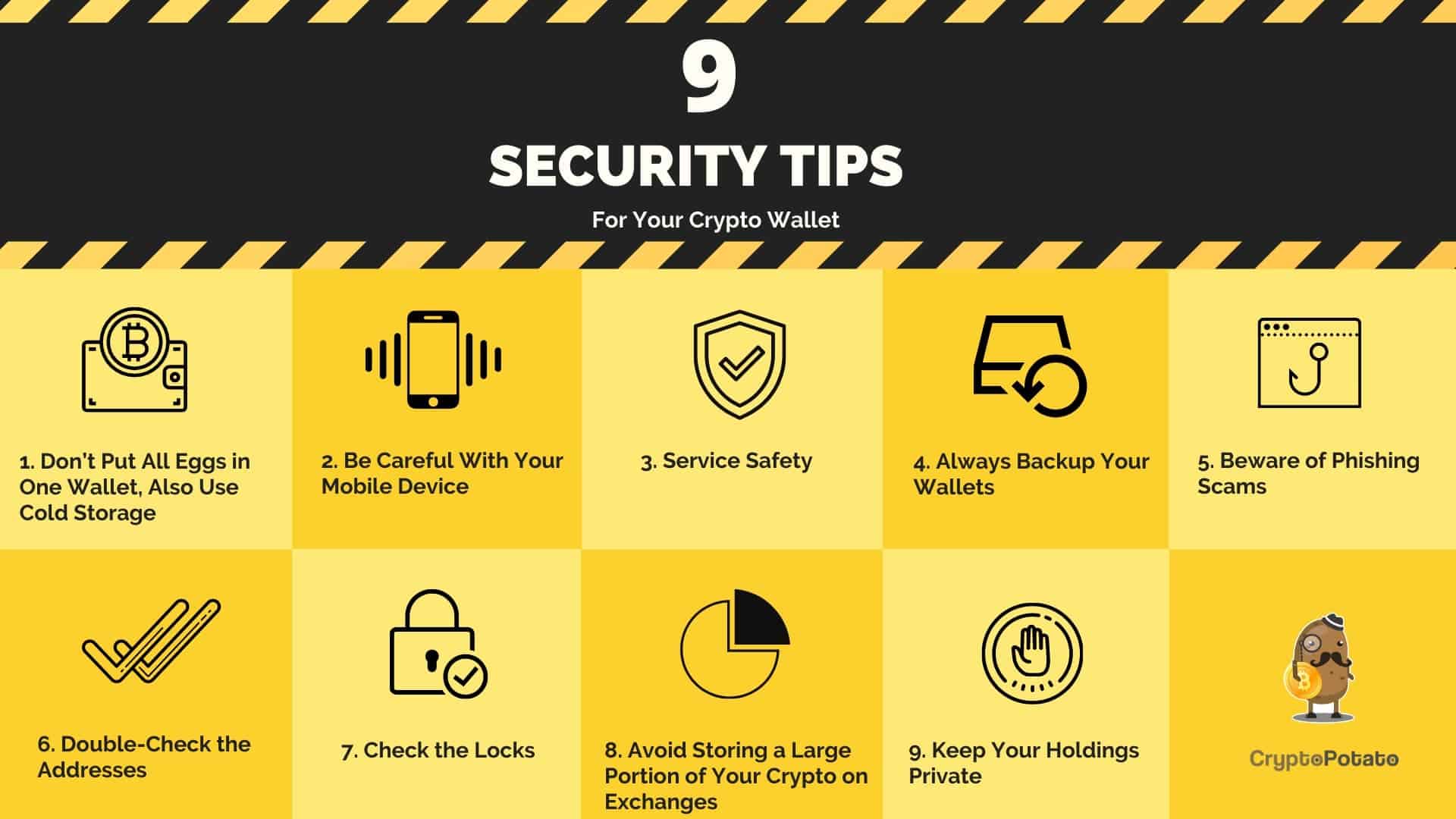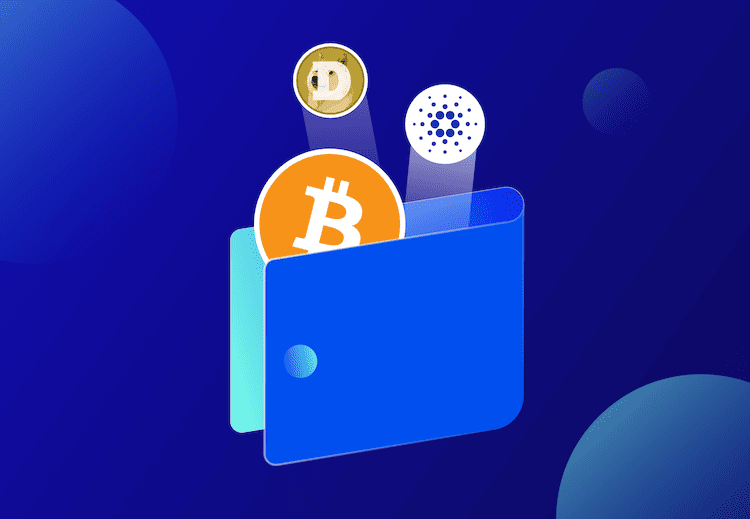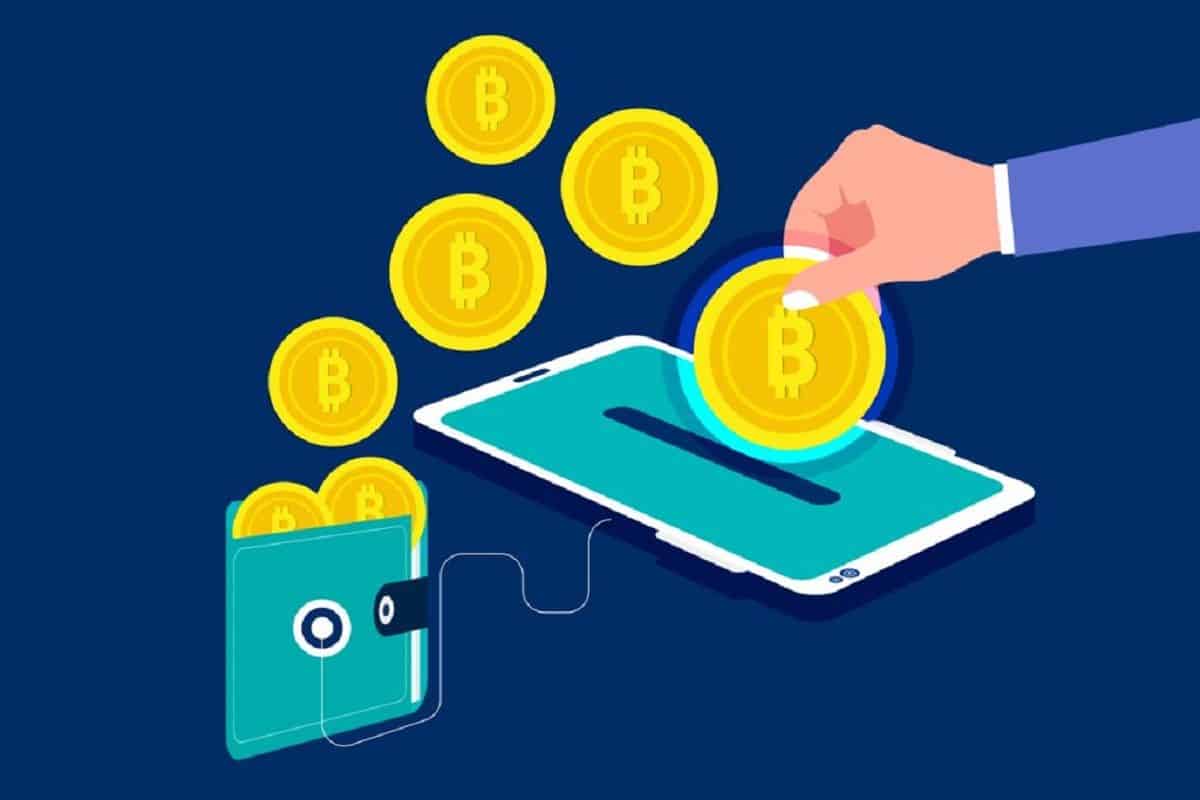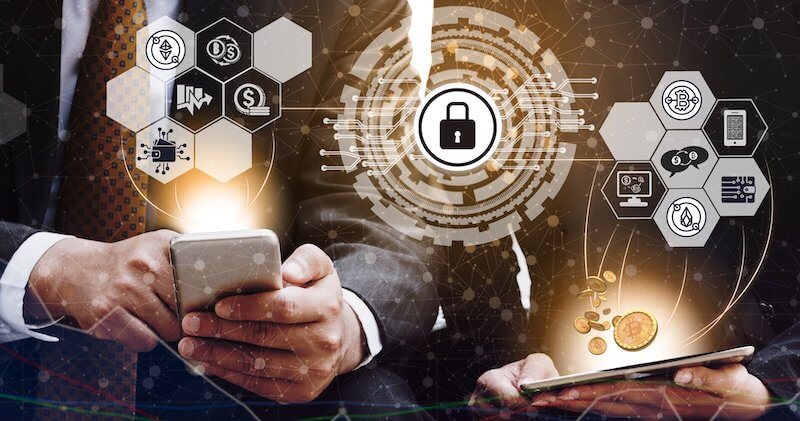Welcome to the front line of digital currency safety. I’m here to arm you with the Best Practices for Crypto Wallet Security as tight as Fort Knox. Think of your digital coins like your most prized possessions; you wouldn’t leave your house keys just lying around, right? The same goes for your cryptocurrency. Cyber crooks get smarter every day, but don’t sweat it, I’ve got your back. Turn those digital locks and get ready to make your crypto wallet a vault that even the slickest hackers couldn’t touch. Ready to become a crypto security ninja? Let’s dive in!
Understanding the Importance of Crypto Wallet Security
The Role of Digital Wallet Security in Safeguarding Your Assets
Imagine a wallet that holds your money safe. Now, think bigger where this wallet is essential for not just a few bills but your entire crypto fortune. This is the kind of weight digital wallet security holds in the cryptocurrency world.
But why is it so serious? Simple: digital money needs digital protection. Your wallet holds keys, kind of like secret codes, that let you access and spend your cryptocurrency. If someone else gets them, they can take all your coins. It’s just like losing your purse or wallet with all your cash inside.
Question: What is crypto wallet security?
Answer: It’s protecting the secret codes that access your cryptocurrency.
Crypto wallet security means setting up defenses – a mix of smarts and tech – to keep these codes safe. Here’s how you do it.
First, know the risks. Phishing scams can trick you into giving away your secrets. Imagine getting an email that looks real but is fake, and it asks for your wallet’s key. If you’re not careful, bam! Your crypto could be gone. Crypto malware is another sneaky threat. It’s like a computer virus that hunts for your wallet keys.
So, how do we fight these threats? Start with your password. Make it complex and unique, never use easy-to-guess ones. It’s a simple step, but it’s like having a great lock on your front door. Then, add another layer – multifactor authentication. This could be a code sent to your phone or even your fingerprint. It makes sure it’s really you trying to get into your wallet.
Cold storage for crypto is another hero. It means keeping your wallet completely offline. It’s like locking your most precious items in a safe that no thief can touch, because it’s not even on the map!
Then, keep your wallet software updated. Just like your phone needs updates to work its best and stay safe, your wallet does too.
And don’t forget about your wallet backup. If you lost your phone with your wallet on it, you might think your crypto is lost too. But if you have a secure backup, you can get back in the game.
Speaking of risks, you need to watch out for fake wallets. They’re like traps, pretending to offer safety but are there to steal from you. Always choose trusted wallet providers.
Hardware or software wallets? Both can be safe choices, but hardware wallets offer an extra shield since they store your keys offline. But, no matter what you pick, setting them up right is key.
And let’s talk about VPN for wallet security—it’s like a secret tunnel for your internet use. It keeps your online steps hidden so hackers can’t follow you.
Remember, when it comes to securing your digital gold, there’s no such thing as too cautious. You’re the guardian of your crypto kingdom, and with the right knowledge and tools, you’ll keep your treasure safe.
Adopting Robust Password Management
Implementing Robust Password Practices and Encryption
Creating strong passwords is a must for keeping your digital coins safe. Use a mix of letters, numbers, and special symbols for best security. Make sure it’s a mix that doesn’t make sense together. This way, it’s harder for bad guys to guess your password.
Encrypting your password means turning it into a code that only you can understand. Think of it like a secret language only you know. You want to keep your secret safe, right? Encryption does that for your digital wallet.
The Necessity of Multifactor Authentication and Two-Step Verification
Multifactor authentication or MFA adds extra steps to check it’s really you. Imagine a guard who asks for two IDs before letting you into a super cool club. MFA works like that. It’s like having more locks on your door.
Two-step verification is a type of MFA. It might send a code to your phone when you try to log in. You then enter this code to get access. It’s like a combo move to keep your stuff secure.
By using both robust practices and MFA, you’ll have a tough shield against theft. Always stay sharp and keep your coins safe!
The Use of Hardware and Software Wallets for Enhanced Security
When it comes to the safekeeping of your hard-earned cryptocurrency, it’s essential to understand the use of both hardware and software wallets. Each of these wallets carries a unique set of features designed to protect your digital assets and ensure your peace of mind.
Setting Up Your Hardware Wallet: Tips and Best Practices
A hardware wallet is a physical device that stores your private keys offline, away from malicious cyber interference. The security of these wallets is peerless due to their “cold storage” nature – that is, your crypto assets remain offline and far from the grasp of hackers. But how do you set it up with the utmost security in mind?
First off, buy from a reputable source. Wallet service providers such as Ledger or Trezor are widely trusted in the community. After acquiring the wallet, set it up on a secure, malware-free device. The device takes you through creating a new wallet, where it generates a seed phrase. This phrase is your recovery lifeline, meaning it should be kept safe.
Once the wallet is set up, ensure all firmware updates are current. Regular updates from trusted wallet providers often contain crucial security enhancements that guard against evolving crypto malware threats. Finally, combine the use of your hardware wallet with complex password practices and two-step verification for added layers of protection.
Software Wallets: Updating and Securing
Software wallets, which can be mobile, web, or desktop-based, provide a user-friendly interface for daily crypto transactions. However, just like hardware wallets, they require vigilance to maintain digital wallet security.

When choosing a software wallet, opt for a reputable one that has robust security, like biometric authentication. Regularly update your software wallet. These updates, like in hardware wallets, help in warding off phishing scams and wallet hacking risks.
Secure storing of cryptocurrencies in software wallets also demands strong password encryption, multifactor authentication, and secure key management. Keep your private keys private; exposure to third parties, even friends or family, can lead to crypto thefts.
Lastly, avoid fake wallets. Malicious actors may try to lure you into using a fake wallet, resulting in the loss of your cryptocurrency. A keen eye and some quick research can save you from falling into this trap.
Remember: maintaining the security of both your hardware and software wallets requires ongoing vigilance, regular updates, and adherence to best practices for crypto wallet security. By taking these steps, you’ll ensure your digital assets remain just that—yours.
Advanced Security Measures for Crypto Owners
Establishing Secure Wallet Backups and Recovery Plans
Keep your crypto safe by making a backup of your digital wallet. For starters, keep a copy of your wallet’s key or seed phrase in a secure place. This is your access key to your funds. If you lose it, your coins might be gone for good.
It’s like keeping a spare house key. But instead of under a mat, keep it in a locked safe or a bank safety deposit box. Tell someone you trust about it too. No one can access your coins if your key is lost.
For extra care, make multiple backups. Spread them out across different safe spots. This way, if one backup is lost, you’ve got more. Always check up on your backups. Make sure they are safe and sound.
The Importance of Secure Connectivity and Avoiding Public Wi-Fi
Keep your crypto deals private. Only use a secure internet connection when handling your funds. Public Wi-Fi can be a hacker’s playground. They might steal your data and your coins.
Think about using a VPN (Virtual Private Network). This makes your online actions harder to spot. It’s like a secret tunnel for your internet use. Even on your home connection, a VPN adds an extra layer of safety.
Stay away from sites or apps that look fishy. They might be fake setups trying to grab your info. Always double-check every website or app you use for trading or storing crypto. If in doubt, it’s better to be safe and avoid it.
In the world of crypto, being safe is really important. We talked about keeping your wallet backed up and the need for a really secure internet link. Understand that these steps are like putting on your armor in a battle. They’re key in keeping your crypto treasures away from bad guys. Always stay sharp and keep your guard up to keep your digital coins safe.
We’ve covered key points to keep your crypto safe. Remember, wallet security is vital to protect your assets from threats like phishing and malware. Strong password habits and encryption are your first defense line. Always turn on multifactor authentication for that extra security layer.
Choosing the right wallet counts too. Hardware wallets offer top-notch safety, but you must follow setup best practices. Keep software wallets updated to fend off risks. Don’t forget, backups and recovery plans are your safety net in a pinch. Stay away from public Wi-Fi when dealing with your crypto to guard against unwanted snoopers.
Your digital coins are precious; safeguard them like you would a treasure. Use these tips and stay secure!
Follow Crypto Currency Bitcoin to update more knowledge about Crypto
Q&A :
What are the best practices for crypto wallet security?
It’s crucial to safeguard your crypto assets by following top-tier security practices. This includes routinely updating software, avoiding public Wi-Fi when accessing your crypto wallet, and using hardware wallets for storage.
What recommendations can one follow to ensure crypto wallet safety?
Experts suggest using two-factor authentication, avoiding clicking unknown links, regularly backing up your crypto wallet, and imposing limits on transaction amounts for optimal crypto wallet safety.
How can I update the security of my crypto wallet regularly?
You can enhance the security of your crypto wallet by frequently updating wallet software, using the latest security enhancements, and regularly auditing your security practices with the help of external experts if necessary.
What are the common mistakes to avoid for crypto wallet security?
The common mistakes include using public Wi-Fi for transactions, not utilizing two-factor authentication, keeping large sums in online wallets, and not performing regular backups.
Are hardware wallets considered safe for holding cryptocurrency?
Yes, hardware wallets are generally considered one of the safest storage options for cryptocurrencies. They offer offline storage, keeping your crypto assets out of reach from online threats. However, they should be stored securely as physical theft can become a risk.
